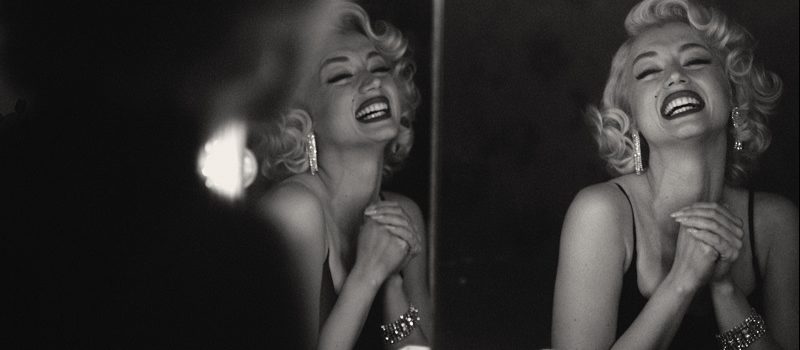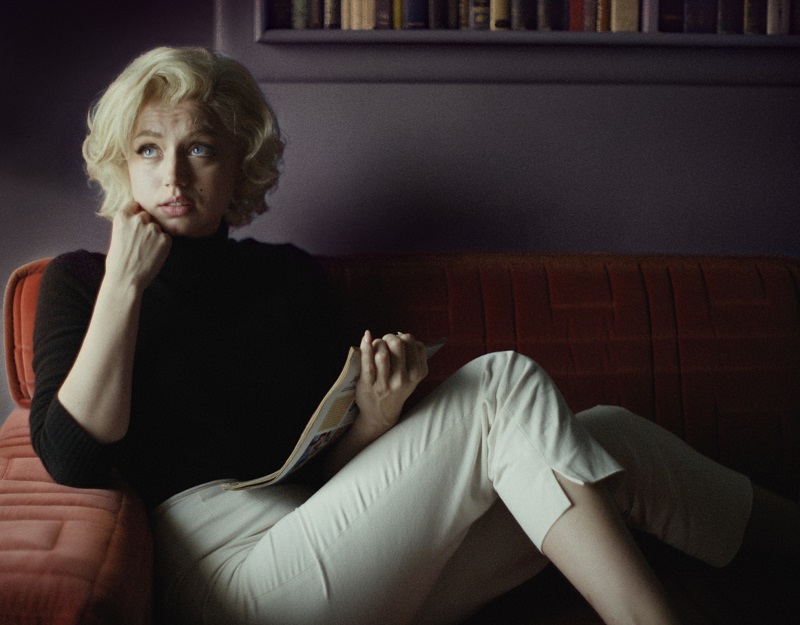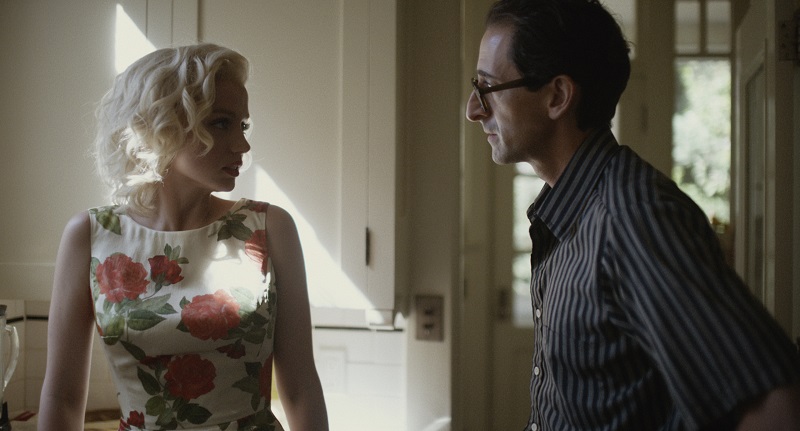A reimagined story with a mesmerizing muse, Blonde showcases Ana De Armas’s talent in an unprecedented fashion.
From Judy to Jackie, the Hollywood biopic never seems to disappoint, and Andrew Dominik’s Blonde is no exception. Echoing Pablo Larrain’s Spencer, Blonde tells a reimagined version of Marilyn Monroe using Armas as his vessel for personifying Joyce Carol Oates’s fictionalized novel based on the icon’s life of the same name.
The film begins by showing a young Norma Jeane Mortenson (Lily Fischer) and her tremulous relationship with her mother played by Julianne Nicholas. Here we get a first-hand look at the abuse and neglect young Norma Jeane experienced during her childhood. This foreshadows a theme of objectivity and abuse that runs prevalently throughout this rather dark fictional account. Then we jump to Marilyn’s early work as a model/actress. A bleak period that would later be noted in the film as “her start.”
Shot in a mix of black and white and in color, the film’s beautiful cinematography sets the tone for the disturbing journey. Audiences can tell when she is happy when the sequences are shot in bright, vibrant colors. Then when she is forced to be Marilyn, we see it through a black and white lens.
The screenplay also reads rather poetically. Softly exclaiming the silent cries of a lonely, broken soul that’s desperately crying out to be loved to fill the void in her life that her father’s absence left. Dominik takes us down a path with a focus on her struggles with abandonment issues that later manifest in her inner relationships with men.
While the film is at times desolate and disturbing, Ana De Armas is transformative, provocative, and downright sensational as she channels Marilyn Monroe throughout the entire two hours and forty-six-minute runtime.
Given its unusual NC-17 rating, Armas is given the liberty to fully thrust every fiber of her being into the role. With this as her armor, Armas goes where Judy, Jackie, and Spencer couldn’t. The 34-year-old actress is given the opportunity to showcase her talent in an unwavering way that provides great impact and singlehandedly saves the film.
Dominik takes full advantage and creative liberties when it comes to this inventive version of Monroe. From threesomes with Hollywood legends to sexual abuse, it’s most certainly not an easy watch. In fact, at times, the explicitness of the story is almost to too much to bear. From the intensity of the physical abuse to the reimagined rape, it can at times be cringe-worthy and arguably unnecessary.
There are also some questionable editing choices. For example, there are many slow fades to black and abrupt jump cuts. But overall, the film is carried by its star.
Blonde will no doubt be as controversial as Marilyn’s very existence was. But there is something to be said about the power of storytelling here. While this is a fictional account, there is no doubt that Marilyn and many women had similar experiences in early Hollywood. To what degree, we may never know. Alas, we hope that with this story we can cultivate newfound respect and admiration for the tortured icon.
Audiences will be equal parts enraged and engrossed by Armas’s enthralling performance and the portrayal that Dominik chose. But no matter how one interprets this beguiling film, one thing is for sure, sympathy will be had for the starlet’s life and her internal battles. What’s more, there’s no denying that Armas is now a frontrunner in this year’s awards race and a bonafide movie star.
Grade: C+



